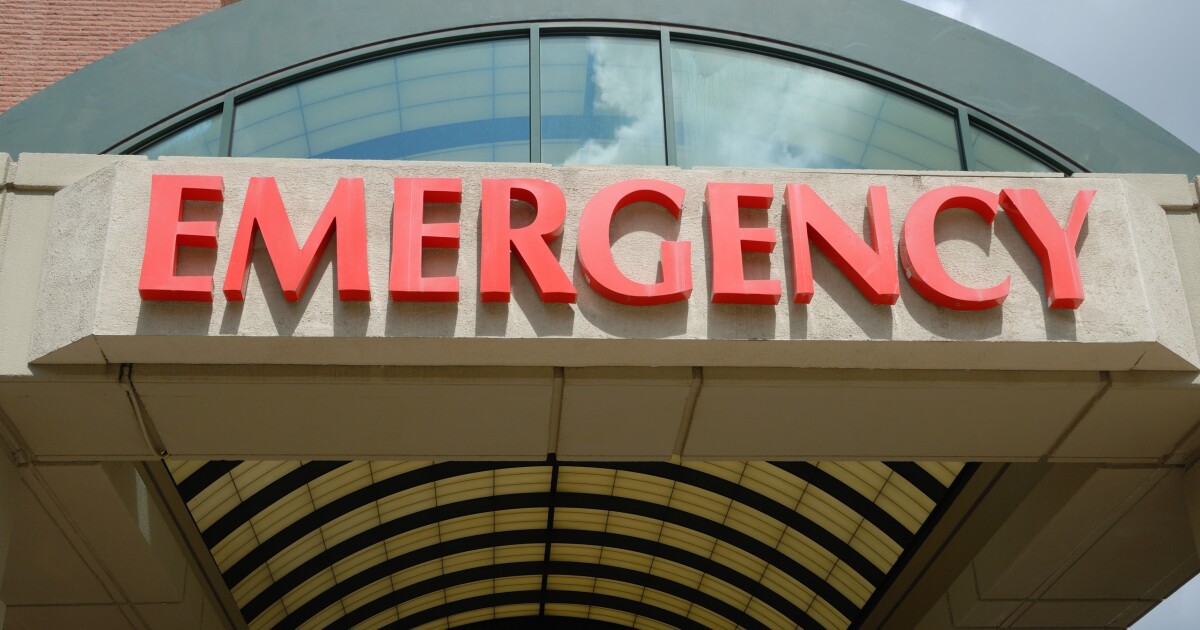[ad_1]
New Hampshire’s inpatient mental health system would expand significantly under a pair of contracts coming before the state’s Executive Council Wednesday.
The largest deal would give SolutionHealth — the hospital system that includes Elliot Hospital in Manchester — up to $15 million to help it build a 120-bed behavioral health hospital in Southern New Hampshire.
The New Hampshire Department of Health and Human Services is also proposing to put $1 million toward creating five new emergency psychiatric beds at Dartmouth-Hitchcock Medical Center in Lebanon.
Both deals would use federal money from the American Rescue Plan Act. The new beds are expected to open sometime next year.
New Hampshire’s shortage of mental health beds has long forced some people in crisis to be held in emergency rooms for days or weeks before being transferred to appropriate treatment. Patients and hospitals have sued over the practice in state and federal court. A federal judge recently ruled it illegal and ordered the state and hospitals to work out a timeline for proposing a solution.
Twenty-eight adults and seven children were in hospitals waiting for an emergency psychiatric bed as of Tuesday, according tostate data. Another six adults were in correctional facilities.
In his most recent proposed state budget, Gov. Chris Sununu has put forward legislation that would require hospitals to operate involuntary psychiatric beds. It would also allow patients who are involuntarily admitted because of a mental health crisis to be held in ERs for longer before being transferred to treatment.
Hospitals strongly oppose the proposal, and have argued in court that the state is not meeting its obligation to maintain enough capacity in the mental health system. The state’s main psychiatric facility, New Hampshire Hospital in Concord, has about 30 beds going unused right now in part due to staff shortages.
State health officials have said they’re working to expand the system, but can’t create more capacity overnight or immediately improve the hiring situation. They’ve also said the hospitals could do more to be part of the solution.
The new behavioral health hospital, estimated to cost between $55 million and $60 million, would include 72 beds for adults admitted voluntarily or involuntarily; 24 beds for children and adolescents; and 24 geriatric beds. Because it would consolidate some of SolutionHealth’s existing mental-health services, the facility would create a net increase of around 80 beds.
The hospital would have to maintain those beds for at least 10 years.
The Joint Legislative Fiscal Committeeapproved funding for the proposal in September. A previousplan to partner with HCA Healthcare on a mental health facility in Epping fell through last year.
The state has also been offering federal money to any hospital willing to create new emergency mental health beds. Dartmouth-Hitchcock Medical Center is the first taker so far.
Dr. William Torrey, chair of psychiatry at Dartmouth Health, said in written answers to questions that hospital officials responded to the state’s initial request “and have been working internally on renovation needs and planning.”
The renovation will combine two separate units into one, with 19 voluntary and five involuntary beds. It is expected to be up and running in summer or fall of 2024, he said.
“Being able to admit people directly needing involuntary care means that they can get care more quickly and locally, spending less time in our ED and their families and other supporters will not have to travel as far to see them,” he said.
The contract before the Executive Council Wednesday says Dartmouth Health must operate the beds for at least six years.
Susan Stearns, the executive director of the National Alliance on Mental Illness’ local chapter, welcomed the plans to expand inpatient capacity. She said more beds — including for children and adolescents — are sorely needed as people continue to wait for care.
But she also called for more community-based mental health services and supportive housing. Some hospitalized patients no longer need to be there, but can’t be discharged because of a lack of appropriate housing, she said.
“We can’t think that just expanding inpatient capacity is the solution,” she said. “We have to continue that investment into those community-based resources upstream that help prevent people from needing that level of care.”
[ad_2]
Source link


